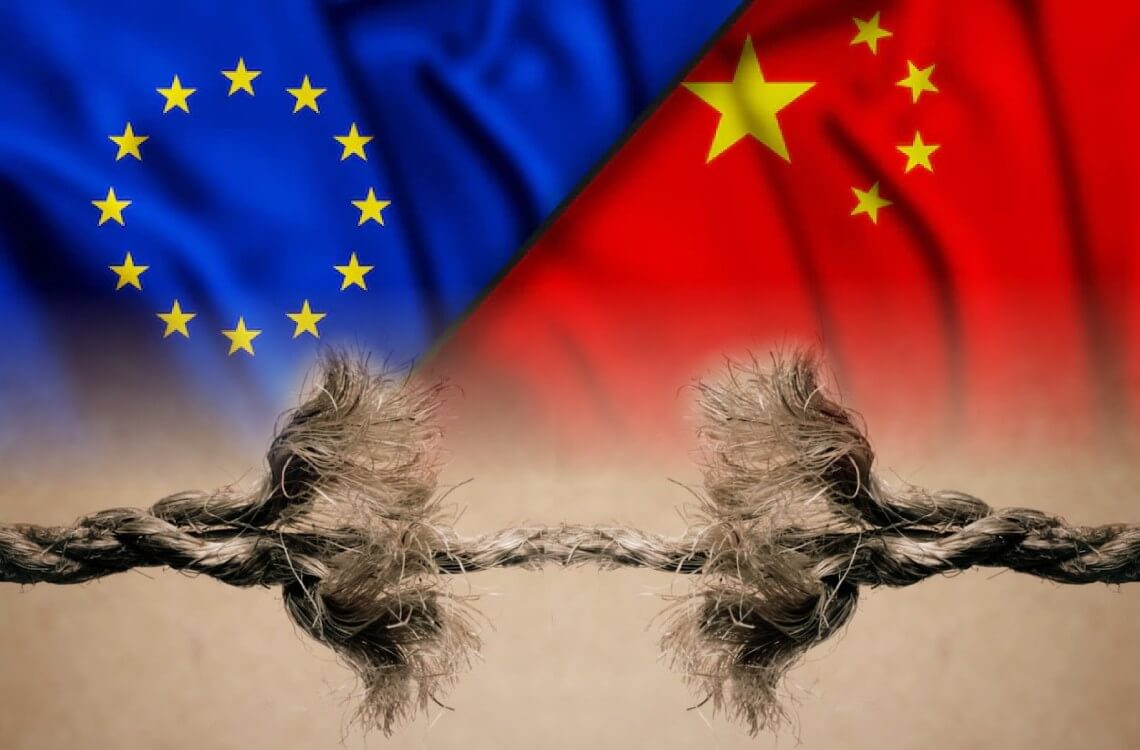The ambitious European Union initiative to minimize its economic dependency on China seems to be unraveling at the seams. Despite overt efforts by the EU to “de-risk” its economic ties due to heightened tensions, evidence suggests the opposite trend: deepening economic interdependence.
Increased dependency despite strained relations
In the midst of global shifts and political maneuvers, China’s export prowess continues to surge. From 2018 to 2022, the value of goods pouring into the EU from the global export juggernaut almost doubled.
This uptick in imports is not just confined to benign merchandise. There are rising imports of phones, computers, and machinery, and alarmingly, there’s a lurking suspicion that some of these imports could be Trojan horses — tools that might allow China to gather crucial state secrets.
Further cementing the EU’s intertwined fate with China is its growing reliance on the East Asian giant for rare earths and critical raw materials.
It’s akin to a tech enthusiast begrudgingly admitting their dependence on the latest gadget; they might not like the implications, but they can’t seem to let go.
US versus EU: A tale of two strategies
Contrast this with the United States, which appears to have a firmer grip on its “de-risking” strategies. Since the imposition of a 25% tariff on a myriad of Chinese imports by the Trump administration in 2018, the US has seen its imports from China drop from 21% to 16% by 2022.
While this might be a veneer, with some Chinese businesses smartly rerouting their supply chains to circumvent tariffs, the intent and direction are clear.
The EU, on the other hand, seems to be moving in a contradictory direction. With the US backing away from Chinese imports, the EU appears to be filling the void.
A notable instance? The automobile sector. European car manufacturers have seen their sales to China skyrocket, as their American counterparts faced barriers.
This opportunistic surge in trade, valued at €24 billion last year, however, could soon face its own set of challenges.
The rise of Chinese carmakers is not just a distant rumble; it’s a roaring engine approaching fast. With three of Europe’s top-selling electric vehicles last year being Chinese imports, the dominance is undeniable.
Navigating the path of de-risking
“De-risking” and “decoupling” have become the buzzwords right now. While the former aims at targeted measures to prevent over-dependency on specific, sensitive technologies, the latter implies a more extensive, comprehensive strategy, like the US’s significant tariffs on Chinese imports.
Yet, whatever the terminology, from China’s perspective, it all sounds eerily like containment.
The EU’s balancing act is evident in its leaders’ statements. While European Commission President Ursula von der Leyen concedes that full “decoupling” from Beijing is unrealistic, she emphasizes a focus on “de-risking” the EU’s economy.
This is further corroborated by a statement from a recent EU summit, suggesting that while the EU acknowledges its vulnerabilities, it has no intention of turning its back on trade with China.
However, with countries like France and Germany taking firmer stances — the former adjusting subsidies to combat Chinese EV makers and the latter explicitly warning its corporations to tread cautiously with their Chinese dependencies — it remains to be seen how this juggling act will pan out.





